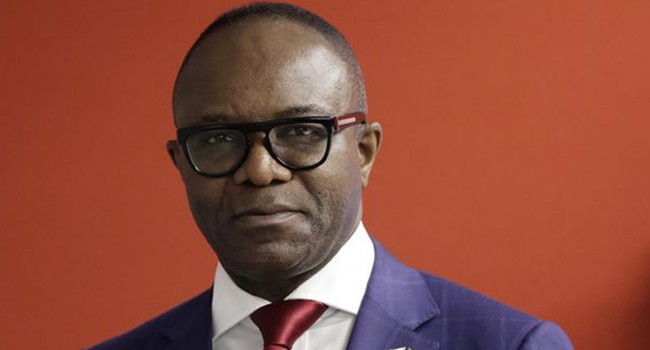Business
‘Nigeria’s economy lacks the essential engine for growth’- Kachikwu

The Minister of State for Petroleum Resources, Dr Ibe Kachikwu, Tuesday, admitted that Nigeria has an energy dilemma that needs to be addressed in order to boost economic development.
He stated this at the annual conference and exhibition of the Nigerian Association of Petroleum Explorationists in Lagos.
Kachikwu, who was represented by his Special Adviser on Fiscal Strategy, Dr. Tim Okon, said: “The imperative for our (oil and gas) industry is really not to remain extractive. We have in the last 60 years extracted hydrocarbons and sent it offshore. Part of the fiscal policies stance and the petroleum policy, gas policy, etc, is to ensure that that changes significantly.”
According to him, the ministry’s Seven Big Wins initiative was aimed at focusing on economic development, and not the collection and division of rents.
“Our task is not only to extract but also to process and to create activities that lead to economic development. The essential reforms in the oil and gas industry must be anchored on getting our people back to work.
“Our economy lacks the essential engine for growth. We are in an energy trilemma: We export energy in a primary form, we import petroleum products, and we have a power crisis. That is called the energy trilemma. So, we must deal with this. We are working so that we get results.”
Kachikwu further stated that the Federal Government was committed to doing a lot to transform the economy for the benefit of Nigerians, noting that “natural resources take hundreds of years to form and usually require very little years to extract and dispose of.”
Also speaking at the conference, the Chief Executive Officer, Seplat Petroleum Development Company Plc, Mr Austin Avuru, in his keynote speech, noted that the country fell into a recession in 2016 on the back of oil price crash and production decline, warning that the economy would slip back into a recession if oil price and production drop again.
Read also: POWER SECTOR: FG targets 30% renewable energy by 2030
Avuru said: “With prices going back up, confidence is rising and more projects are being sanctioned. We are now seeing a paradigm shift and attempting, as a country, to then use of our gas resources not as just a rental revenue agent but as an enabler for business and for bigger economic growth.
“The truth is that an economy is as large as how much energy it consumes. So, when we produce 8.9 billion standard cubic feet of gas a day, and only nine per cent of it is consumed domestically, it says a lot about what our economy looks like.”
According to him, the countries with the highest Gross Domestic Product per capital are also the largest energy consumer per capital, and that is what it should be.
“So, as a country, our aspiration, beyond just increasing our oil and gas production, should actually be to maximise our domestic energy consumption; that is what will expand the economy, not just receiving $25bn-$30bn every year from oil revenue from abroad. That is not what will grow our economy”, Avuru said.
Join the conversation
Support Ripples Nigeria, hold up solutions journalism
Balanced, fearless journalism driven by data comes at huge financial costs.
As a media platform, we hold leadership accountable and will not trade the right to press freedom and free speech for a piece of cake.
If you like what we do, and are ready to uphold solutions journalism, kindly donate to the Ripples Nigeria cause.
Your support would help to ensure that citizens and institutions continue to have free access to credible and reliable information for societal development.






















